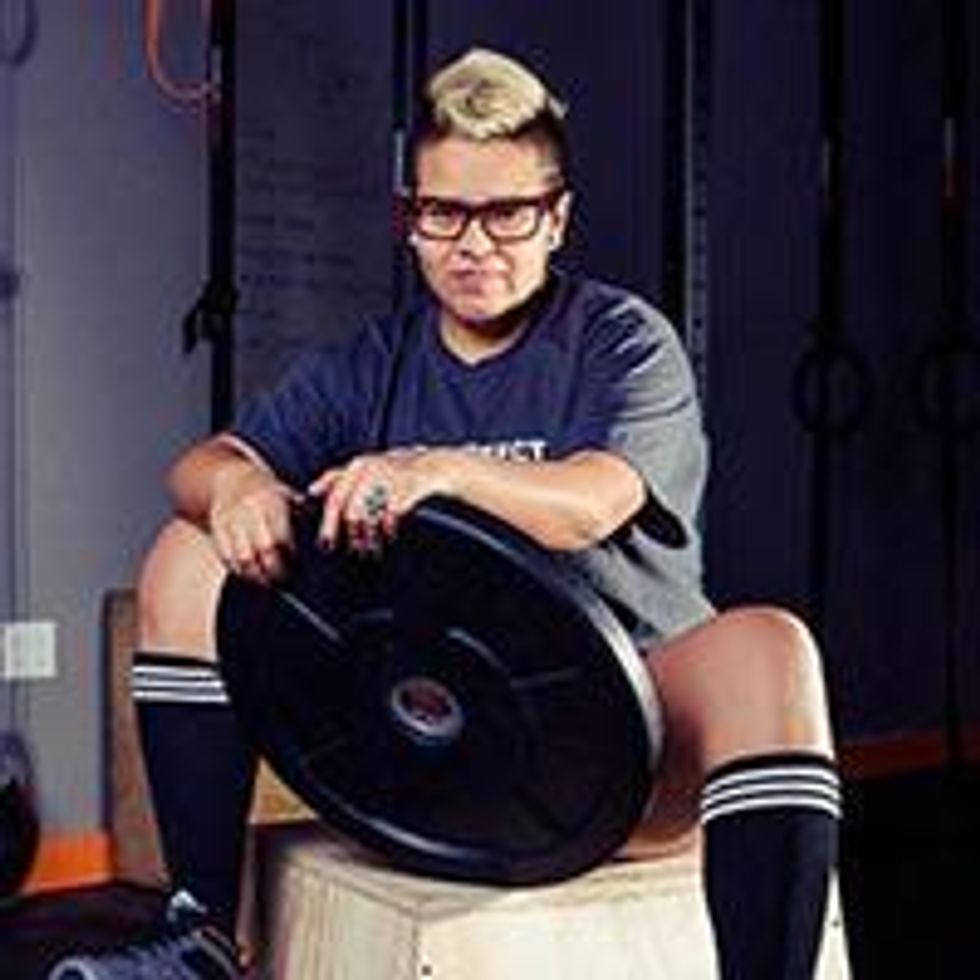
Nathalie Huerta's LGBT-friendly gym in Oakland is not just a place of fitness, but a safe space and community gathering spot.
April 01 2016 1:46 AM EST
By continuing to use our site, you agree to our Privacy Policy and Terms of Use.

Nathalie Huerta's LGBT-friendly gym in Oakland is not just a place of fitness, but a safe space and community gathering spot.
Last year was a historic year for LGBT people: The Supreme Court legalized same-sex marriage, President Obama assigned the first transgender appointee to work at the White House, and the Pentagon announced it would allow transgender people to serve openly in the military. In a harsh contrast, 2015 was also the deadliest year for transgender people, with the highest number of transgender homicides of any year on record. Although we made strong headway in our nation's capital, more needs to be done at the grassroots level to better address the needs of the LGBT community.
Growing up as a lesbian athlete, I experienced firsthand the dire need to create a safe space for LGBTQ people to work out without encountering discrimination. As I started to come more into my own and express myself as more masculine, the more uncomfortable and isolated I felt at a corporate gym. The women did not want to be around me in the locker room and men made me feel unwelcome in the weight room. When I could not find a gym that made me feel accepted, I decided to create my own. In 2010, I founded the Perfect Sidekick in Oakland, Calif., the first and only LGBTQ gym in the country. It is inclusive of everyone (25 percent of our clients are heterosexual), provides a sense of community, particularly to those who are estranged from their families, and offers tailored training for transgender clients preparing for gender-affirming surgery.
Transgender people now more than ever need safe spaces where they can gain support from both LGBT and non-LGBT allies to fight the stigma and discrimination they encounter not just at gym facilities, but also in everyday life. More transgender people were killed in 2015 than in any other year on record, according to a report by the Human Rights Campaign. At least 21 transgender people -- nearly all of them transgender women of color -- were homicide victims, up from at least 13 transgender murders in 2014. Sadly, there might be countless other anti-transgender killings that will go unknown due to police, family members, and the press misidentifying the victims based on their assigned sex and name at birth. At the Perfect Sidekick, we understand the importance of respecting a person's preferred gender pronoun and the implications it can have on a client far beyond the gym walls. At the beginning of each class, our trainers ask each client their name and preferred gender pronoun. It has made tremendous impact on our clients' confidence and comfort levels, not just at the gym but in their everyday lives. In the same spirit of inclusivity, our gym's locker rooms are non-gender-specific -- eliminating any potential feelings of isolation.
Without knowledge and education about the unique health issues that affect transgender people, mainstream corporate gyms cannot properly address the needs of this demographic. In addition to providing a safe space and sense of community in a gym, it is important that gym executives and personal trainers proactively educate themselves on the various phases and health implications faced by people who are transitioning. Trainers at the Perfect Sidekick are provided with LGBTQ sensitivity training every six months and are coached on how to implement tailored training for members preparing for gender-affirming surgery. Clients who are taking estrogen hormonal therapy focus on weight lifting and building muscle to counteract the weight gain that comes with estrogen. Someone taking testosterone has a higher likelihood of injury due to two things: One, they're unfamiliar with this newfound strength, and two, testosterone builds up muscle and decreases a person's flexibility and range of motion. To avoid injury, clients taking testosterone focus on yoga and joint mobility.
LGBTQ people, just like everyone else, want to feel celebrated and welcomed. In addition to assisting clients with their physical transition, the community formed at the Perfect Sidekick provides support into members' personal lives with things such as financial resources and post-op help. The gym organizes events, such as drag queen bingo fund-raisers, to assist those who are transitioning and max out what their benefits cover. These events do not just provide financial support; they also allow our clients to make new friends. The gym's community event organizer coordinates volunteer groups to assist clients who might not have family support. Volunteers assist with various needs after the client's surgery, such as walking the dog, getting groceries, and driving them to doctor's appointments. These small acts help clients both physically and emotionally -- providing a sense of ease knowing that there is a group of people who accept them, celebrate them, and genuinely care about them.
With this week's 2016 Transgender Day of Visibility, it is important to take a moment to be grateful for LGBT rights gained last year, as well as empower ourselves to create the change and resources that meet the needs of our community for 2017 and beyond.

Charlie Kirk DID say stoning gay people was the 'perfect law' — and these other heinous quotes